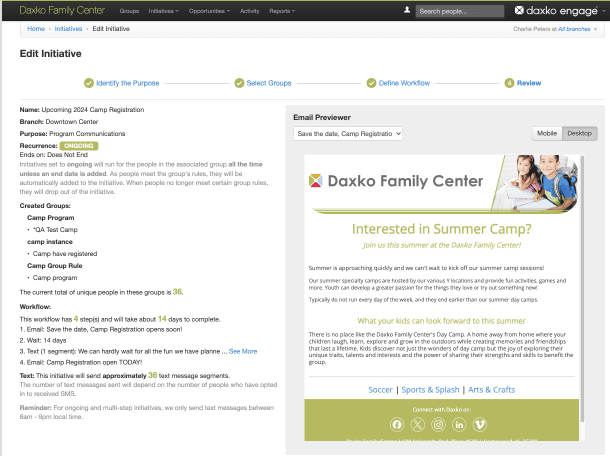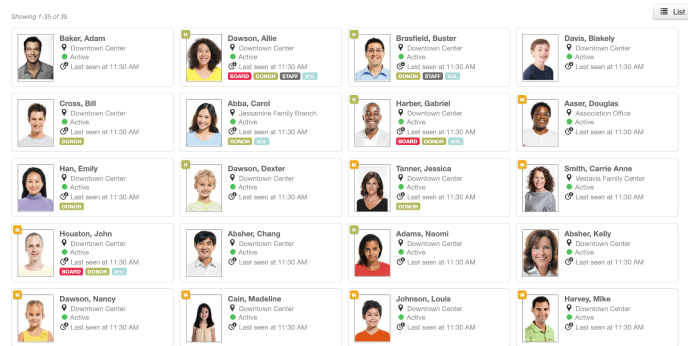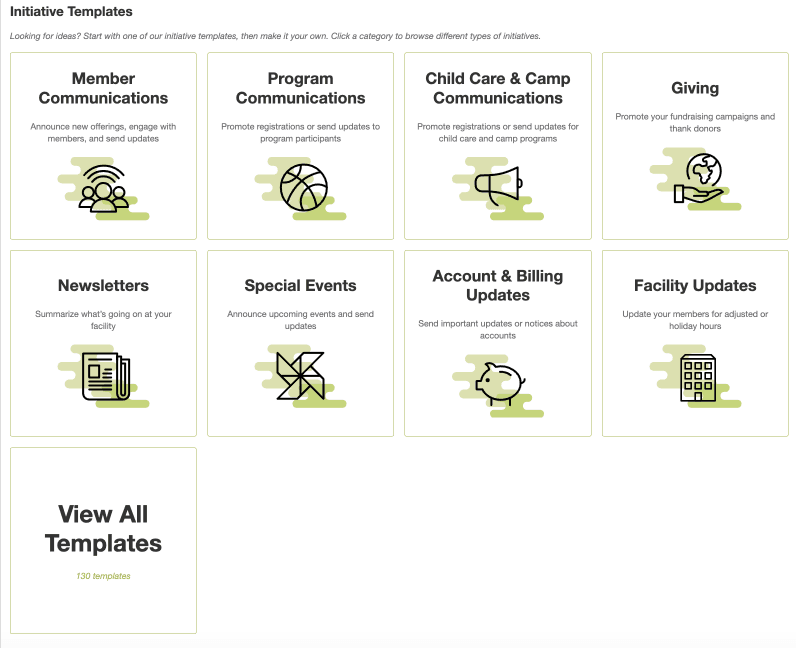
Managing relationships with donors, members, and stakeholders is more complex than ever. To stay competitive and maximize their impact, nonprofits need tools that help them streamline operations, personalize engagement, and drive fundraising efforts. This is where a nonprofit CRM (Customer Relationship Management) system becomes invaluable.
Tailored specifically to the unique needs of nonprofits, a CRM helps organizations manage their relationships more effectively, improve operational efficiency, and foster long-term growth. In this blog, we’ll explore why a nonprofit CRM is essential, the key features to look for, and how to choose the right solution to elevate your nonprofit’s impact.
What is a Nonprofit CRM?
A nonprofit CRM (Customer Relationship Management) system is software designed to help nonprofits manage their relationships with donors, members, and other key stakeholders. It streamlines operations by collecting and organizing important data about interactions, contributions, memberships, and communications.
Unlike general CRM systems, a nonprofit CRM offers features tailored specifically for the needs of charitable organizations. These features enable nonprofits to build stronger relationships with their communities, manage donations more effectively, and improve overall engagement with supporters. Many systems also include mobile apps for nonprofits, allowing organizations to stay connected with donors and members on the go, ensuring seamless communication and engagement from anywhere. In short, the right nonprofit CRM can be a game changer for managing and growing your nonprofit.
Why Do Nonprofits Need a CRM?
A nonprofit CRM isn’t just a tool for managing data — it’s a critical asset for improving every interaction you have with your community. From tracking donor engagement to managing member activities, a nonprofit CRM empowers organizations to operate efficiently, measure performance, and ultimately, better serve their cause.
Here are a few reasons why having a nonprofit CRM is essential:
Streamlined Operations
A nonprofit CRM significantly improves efficiency across all organizational touchpoints, making it easier to manage complex workflows. From tracking donor interactions to handling member communications, a CRM streamlines every step, allowing your team to focus on mission-critical tasks rather than manual data entry. By automating routine processes like email outreach, event registrations, and donation tracking, your nonprofit can operate more smoothly and with fewer errors. Additionally, real-time insights from your CRM empower your team to adjust campaigns on the fly, ensuring your efforts are always aligned with your goals.
Community Member Management
A nonprofit CRM not only helps manage donor information but also plays a critical role in engaging community members and increasing participation in your programs. With a well-organized database of both donors and community members, you can track interactions, preferences, and participation patterns, giving you deeper insights into their motivations. This data allows for more personalized outreach, whether you’re encouraging participation in sports programs, fitness activities, or community events.
By segmenting members based on their interests or event attendance, you ensure that every message is relevant and impactful, helping you build stronger relationships and improve overall community engagement. Additionally, the ability to track member activity supports efforts to increase participation in your programs, ultimately driving both engagement and fundraising outcomes.
Optimized Fundraising
With the right nonprofit CRM, your fundraising and community engagement efforts become more strategic and efficient. A CRM tracks not only the donor journey but also community member involvement, from initial contact to sustained participation and recurring donations. This dual focus allows you to tailor your approach for both donor segments and active members, ensuring you meet the unique needs of each group.
Whether running a major fundraising campaign or encouraging greater participation in community programs, a CRM provides the data and insights you need to optimize your strategy.
Advanced reporting tools enable you to analyze both fundraising performance and community engagement metrics, allowing for data-driven decisions that enhance both aspects of your nonprofit’s impact. By leveraging audience segmentation and performance data, your organization can maximize the effectiveness of each campaign and foster deeper connections with both donors and members.
How to Evaluate Nonprofit CRM Software
Nonprofits that leverage advanced CRM software have a distinct advantage in managing donor relationships, streamlining operations, and maximizing their impact. A robust nonprofit CRM not only enhances donor engagement but also helps organizations efficiently manage fundraising campaigns, membership databases, and volunteer efforts. The right CRM system can drive growth by optimizing workflows and providing deeper insights into supporter behavior.
When evaluating nonprofit CRM software, several key factors should guide your decision-making process. Here are the considerations to keep in mind:
Business Case for Investment
When making the business case for a CRM, nonprofits often focus on how the software can improve both operational efficiency and mission delivery. Start by identifying the challenges your organization faces—whether it’s managing donor data, increasing member participation, or streamlining communication.
Demonstrating how a CRM can alleviate these pain points by automating processes and providing actionable insights will strengthen your case. It’s essential to also highlight potential cost savings, improved donor retention, and increased fundraising success that can result from implementing the CRM. Involving key decision-makers and stakeholders in the conversation early on will also ensure that the evaluation aligns with the overall goals of your nonprofit.
Cost and Budget Alignment
Does the CRM offer transparent and scalable pricing that aligns with your nonprofit’s budget? Ensure the price is reasonable for the features offered and that there are no hidden fees or steep renewal costs. Consider whether the system provides value through advanced features like donor segmentation, analytics, or automation.
For most nonprofits, cost is a major factor when evaluating CRM software. It’s important to assess both upfront costs (such as licensing fees) and ongoing expenses (such as training, support, and upgrades). However, it’s equally important to weigh the potential ROI. A CRM that automates tasks, improves donor retention, or increases community engagement can generate more value over time than one with a lower initial cost but fewer features. Ensure that the pricing structure aligns with your organization’s budget and that the features you’re paying for directly support your mission.
Data Migration and Integration
Can the CRM seamlessly integrate with your current systems, such as email marketing tools, accounting software, or event management platforms? Smooth integration saves time, reduces errors, and ensures data consistency across your organization.
Nonprofits often rely on multiple systems for managing different aspects of their operations, such as accounting software, event management tools, and email marketing platforms. A key factor in evaluating CRM software is how well it integrates with your existing tools. Seamless integration reduces the risk of data silos and ensures that your team can access all relevant information from one platform. Additionally, consider the ease of data migration from your current system to the new CRM—whether you’re transferring donor information, historical data, or event participation records, the transition should be smooth and minimally disruptive.
Ease of Use
Is the software intuitive and easy for your team to navigate? Your CRM should be simple to learn and use, even for non-technical staff, to avoid a steep learning curve and ensure quick adoption across your organization.
Staff Involvement and Buy-In
A critical step in evaluating a nonprofit CRM is ensuring that the software meets the needs of various staff members who will be using it. From development teams managing donor relations to program managers coordinating community activities, each department will have unique needs.
Including staff in the evaluation process will not only help identify key features that benefit different roles but also increase buy-in, making it more likely the CRM will be successfully adopted across the organization. Hosting demos with department leads and conducting hands-on testing can help ensure that the CRM is user-friendly and aligns with your team’s day-to-day workflows.
Customer Support
How reliable is the CRM provider’s customer support? Nonprofits often operate on tight schedules, so quick, responsive support is crucial. Look for software with a dedicated support team that can resolve issues efficiently to avoid disruptions in your operations.
Training and Support
Nonprofit staff often juggle multiple responsibilities, so it’s essential that the CRM is not only easy to use but also comes with robust training and support. Look for providers that offer comprehensive onboarding, ongoing training resources, and responsive customer support. These elements are crucial to ensuring your team can make the most of the CRM’s features and troubleshoot any issues that arise without interrupting operations.
Customization and Scalability
Can the CRM grow alongside your nonprofit? If you plan to expand your programs, increase fundraising efforts, or engage with more supporters in the future, choose a CRM that can scale with your organization’s evolving needs.
A nonprofit CRM should be flexible enough to adapt to the unique needs of your organization. Look for customization options that allow you to tailor workflows, reports, and communication tools to suit your specific operations. Additionally, consider whether the CRM can scale as your nonprofit grows. Whether you’re expanding your fundraising efforts, launching new community programs, or growing your membership base, the CRM should be able to support your evolving needs without significant additional costs.
Security and Compliance
Data security is paramount, especially when handling sensitive donor and member information. Ensure that the CRM adheres to high standards of data protection and complies with relevant regulations, such as GDPR or HIPAA, if applicable to your organization. Confirm that the CRM offers data encryption, regular backups, and secure access controls to safeguard your nonprofit’s data.
By incorporating these factors into your evaluation process, your nonprofit can make a well-informed decision that not only meets immediate needs but also supports long-term growth. Involving your staff, making a strong business case, and choosing a CRM that integrates seamlessly into your current operations will ensure your investment pays off.
Key Features to Look for in a Nonprofit CRM
Choosing a nonprofit CRM can be overwhelming with so many options available. But when it comes to selecting the right system, look for features that cater to the unique needs of nonprofit organizations. Here are some essential features:
Fundraising and Campaign Management
Fundraising is the backbone of any nonprofit organization, and a nonprofit CRM should support comprehensive fundraising management. Look for CRMs that offer tools for creating, launching, and tracking fundraising campaigns from start to finish. The ability to segment donors, set up recurring donations, and track campaign performance is essential for sustained success.

Donor and Member Profiles
A good nonprofit CRM should allow you to build detailed donor and member profiles. Understanding your supporters’ motivations and behaviors helps you engage with them more effectively and personally. Segmenting your donors into different categories can also help you tailor communications and maximize long-term donor retention.

Communication and Engagement Tools
Your CRM should have strong communication capabilities, including email marketing, social media integration, and personalized communication features. These tools are critical for keeping your community engaged and informed about your activities. Moreover, the CRM should provide analytics to measure the success of your communications and help you adjust your strategy as needed.
A strong nonprofit CRM should enable personalized communications through email, SMS, and other channels. Daxko Engage takes this further by integrating multiple touchpoints, ensuring seamless engagement across channels, and automating follow-ups based on donor and member interactions. Its email marketing automation and social media integrations make it easier to communicate effectively with your audience.

Analytics and Reporting
The ability to analyze your data is one of the most valuable aspects of a nonprofit CRM. Your system should provide in-depth reporting on key metrics like donor engagement, fundraising performance, and campaign success. These insights help guide future decisions and ensure that your nonprofit stays on track to meet its goals.
Measuring your nonprofit’s success requires detailed analytics and reporting tools. A nonprofit CRM should provide clear reports on key performance indicators (KPIs) like donor retention, fundraising performance, and community engagement. With Daxko Engage’s advanced analytics, nonprofits can access real-time insights and custom reports, helping you make data-driven decisions and track the effectiveness of your campaigns.
Predictive Analytics
One standout feature of Daxko Engage is Predictive Analytics, which uses historical data and behavioral insights to anticipate future actions from donors and members. This helps your organization proactively target individuals more likely to engage or contribute. By leveraging predictive analytics, you can optimize fundraising efforts, tailor communications, and increase overall member participation.
Elevate Your Impact with the Right Nonprofit CRM
Choosing the right nonprofit CRM can transform your organization’s ability to connect with supporters, manage operations, and drive meaningful engagement. With so many options available, it’s important to assess the features that will best support your mission and goals.
Daxko provides a comprehensive, all-in-one solution built for nonprofit community centers, empowering organizations with advanced tools for donor and member engagement. The platform integrates powerful data analytics, communication features, and member management to drive operational efficiency and build stronger connections with your community.
If you’re ready to see how Daxko’s nonprofit CRM can help elevate your nonprofit’s impact. Schedule a demo today and optimize your outreach with powerful analytics and automation tools that strengthen community bonds.